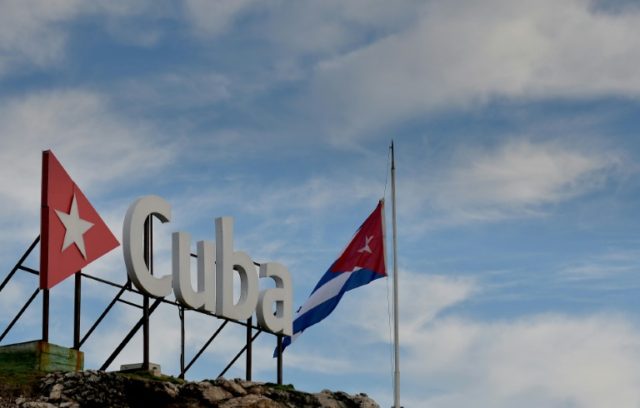The head of the Patriotic Union of Cuba (UNPACU), a Cuban pro-democracy organization, announced Wednesday that 23 members of the group are on hunger strike after violent raids resulted in a mass arrest of fellow members in anticipation of the communist regime staging a fraudulent “constitutional referendum” this month.
UNPACU, along with the other major dissident organizations on the island, is urging Cubans to either vote against the referendum, which asks Cubans whether they approve of a new constitution already written and passed by the rubber-stamp legislature that operates under dictator Raúl Castro, and of which Miguel Díaz-Canel is the president.
Díaz-Canel revealed on Twitter Monday that the constitution is already “approved,” leaving many to ask why the government is staging a vote on the matter.
In addition to urging Cubans to vote “yes” on an already-approved constitution, the Cuban government has begun to use violent repression against dissidents advocating for a “no” vote or an abstention. José Daniel Ferrer, the head of UNPACU, and another 20 members of the group revealed on Tuesday that they received beatings during nationwide arrests on Monday triggered by their public political sentiments.
“Over 200 military troops and Cuban police, under the presence of high ranking members of the Ministry of the Interior, raided eight homes used as headquarters for UNPACU this midnight (Monday into Tuesday) with extreme violence,” a statement from UNPACU issued Tuesday read. “Without officially registered orders and simultaneously, they broke through the fences of the homes with grinders and broke in beating anyone they found in these headquarters.”
Ferrer spoke to the Spanish newspaper ABC and noted that among those arrested were pregnant women, minors, and elderly members of the group. He said that he himself was temporarily detained after receiving a beating targeting his head and abdomen.
“They assaulted my partner, who is five months pregnant, and her 78-year-old grandmother, because she could not get out of bed,” Ferrer told ABC. “They robbed us of everything without showing us any warrant. They took cell phones, computers, and even food that we had in the refrigerator, medicine, and medical records of patients seeing my partner, who is a doctor.”
On Wednesday, Ferrer announced that 23 UNPACU members have committed to a hunger strike in protest of the raids, including himself. Among those he named was Tomás Nuñez Magdariaga, who was wrongfully imprisoned last year and completed his last hunger strike, demanding his freedom, after 62 days. Magdariaga had already completed a year in prison when he was told that, due to an unsubstantiated claim of an attack on police, he would remain behind bars despite having completed his sentence.
UNPACU has a long history of peaceful resistance against the regime and has been among the most prominent groups taking on the Castro dictatorship in modern times. It suffered its most brutal repression in 2015 following a visit from Pope Francis, which triggered the arrests of hundreds of Cubans, including 142 UNPACU members. The arrest of one of those dissidents, Zaqueo Báez, was caught on video as it occurred in front of the pope. Báez approached the pope and shouted the word “freedom,” asking the pope to speak for the repressed. Cuban security agents immediately pounced on Báez, beating and arresting him before the pope and on camera. Pope Francis would later go on to deny any knowledge of the incident.
An non-governmental organization (NGO) monitoring arbitrary imprisonment of dissidents on the island, the Cuban Observatory for Human Rights, warned in early February that the number of arrests had risen as the date of the “referendum,” February 24, approached, suggesting that the reason for staging the vote was to use it as an excuse to silence dissidents.
“The government of Miguel Díaz-Canel has forbidden any allusion to a ‘no’ vote in the media and persecutes via police any activists that intend to urge towards a no vote,” the NGO found.

COMMENTS
Please let us know if you're having issues with commenting.